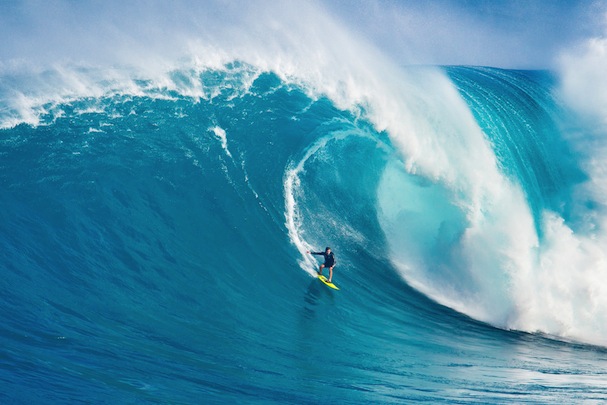This post is part of a series in which LinkedIn Influencers analyze the state and future of their industry. Read all the posts here.
Once upon a time, Hollywood lived by the golden rule – he who had the gold, made the rule. Studios, networks and other gatekeepers enjoyed the keys to the kingdom for a long time and earned enormous economic success. But a funny thing happened on the way to eternal domination – the digitization and subsequent democratization of content creation and distribution which forever changed and continues to change who is holding those keys to success.
This is the current state of the filmed entertainment industry.
The walls that separated the artist from their audience have come down. Artists can now talk directly with the audience without gatekeepers, and the audience can connect directly with the artist. Both the artists and the audience can talk with each other – in real time – whenever and wherever they are.
While networks and studios once enjoyed an audience of millions or hundreds of millions, it’s now an audience of 1 one hundred million times over.
While networks and studios once enjoyed an audience of millions or hundreds of millions, it’s now an audience of 1 one hundred million times over. Each one of these people is, in fact, a niche. When they come together socially, they become a tribe. And when enough tribes come together, it’s called a hit.
These individuals and their tribes want a say in what entertainment they watch, how they watch it, what the ads are, and when they see the ads. They want to interact with both the programs and the ads, and each other. And most of all, they want to pull it rather than be pushed it. They no longer want to be passengers. They want to be participants in this storytelling mechanism.
Today, the entertainment business is no longer an evolution. It’s a full out revolution. And revolutions can be lethal. But, they can also be opportunistic. Success in this new world of constant disruption and lightning fast and three-dimensional change requires mobility, agility and sometimes, even hostility.
-
Mobility
– the entertainment audience is physically mobile and is always connected. While you must leverage all of the state-of-the-art technologies for contact, connection is only earned through state-of-the-heart technology – your ability to emotionally reach them. It’s not the digital 0’s and 1’s or features of your offering, but its ooh’s and aah’s or benefits that will result in viral advocacy and sustained success.
-
Agility
– the audience is always changing. What got you “there” won’t keep you “there.” In fact, there is no “there” there. So you must be agile in responding to the shifting needs of your audience – their geography, age, desires, needs and fears. Success requires constant curiosity, active listening and iterative course correction to meet and beat the expectations of your audience, customers or patrons.
-
Hostility
– you must constantly press the envelope to propel change even though you will face hostility from your team, executives, boards, media, partners and other stakeholders seeking to maintain the status quo. As your innovation or vision or art takes off, you will face hostility from your competitors who are envious of your success. And, in your efforts to sustain success, you must be hostile with yourself and ruthless in challenging your incumbency by reinventing your offering before someone else does it better and faster than you. Face it. If you’re not facing hostility, you’re not facing reality and you’ll unlikely face success.
This isn’t the end of these changes. It’s not even the end of the beginning. It’s the beginning of the beginning. And the pace will only increase. The entertainment business, in the largest sense, has already been incredibly disrupted – look no further than the book publishing and music businesses as examples. They’ve been beaten to death by this rapid change. But, if you choose to ride the wave of change rather than resist it, the opportunity for larger audiences, deeper connections and more robust economic rewards will arise. This is not only true for the entertainment business, but for all industries facing this tsunami of technological change.


